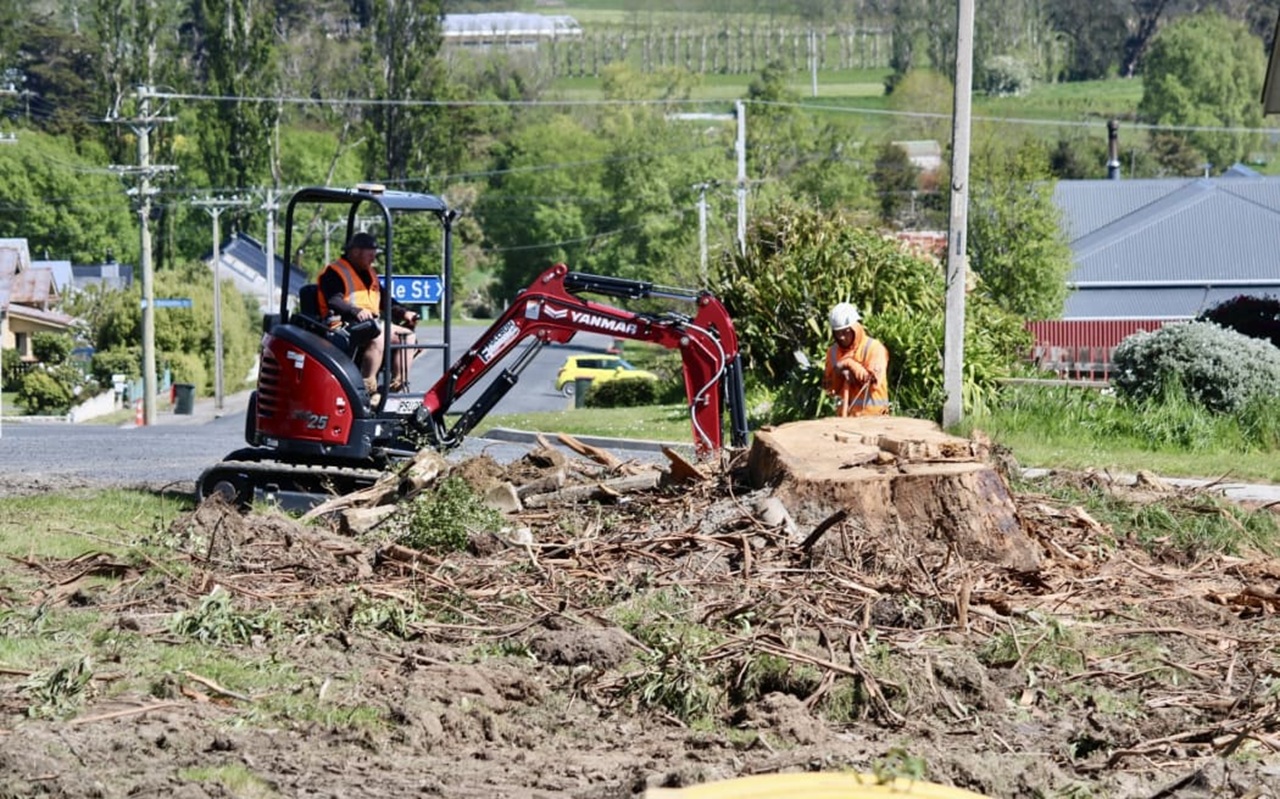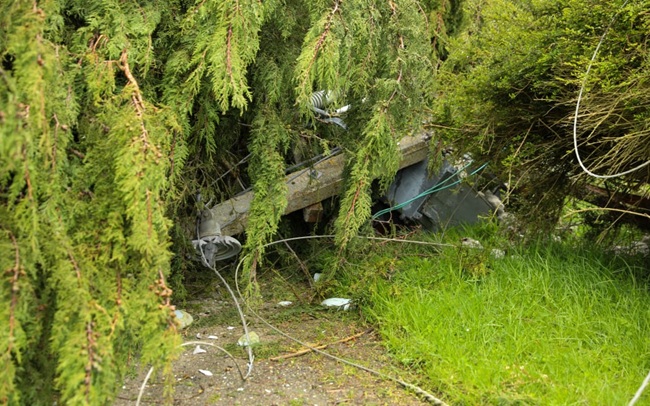Otago Council calls for urgent government change after networks failed in storm
Reporting by RNZ
05 November 2025, 7:51 PM
 What is left of the tree that fell on Robyn Hale's home, after severe spring storms, in October, 2025. Photo: RNZ/ Katie Todd
What is left of the tree that fell on Robyn Hale's home, after severe spring storms, in October, 2025. Photo: RNZ/ Katie ToddThe Otago Regional Council fears some lessons have not been learnt almost three years after Cyclone Gabrielle highlighted significant weaknesses in critical infrastructure.
It wants the government to urgently strengthen telecommunications after destructive winds cut power and knocked cell towers off-line.
Winds of up to 150 kilometres an hour battered the lower South Island last month, leaving communities without power and mobile coverage for long periods.
The Otago Regional Council said communications and water supplies were disrupted as backup systems were failed, revealing "serious weaknesses in regional resilience", in a report tabled at Wednesday's council meeting.
It prompted the council to draft a letter, asking the government for urgent changes.
They included a minimum standard for power backup to cell towers, helping to upgrade existing infrastructure in rural areas, and looking at switching options between networks when one provider's coverage fails.
The council wanted the government to work with councils and emergency management to identify high risk areas and prioritise investment.
Councillor Gary Kelliher backed the call.
"We've become very reliant on telecommunications and it is the difference between life and death in many situations and we don't realise how much we really rely on telecommunications until you suddenly don't have them and then how isolated areas can become," Kelliher said.
He was pleased the letter was calling for more support for local radio stations.
They were often forgotten about when the weather was calm, but were fallen back on and desperately needed when severe weather arrived, he said.
Councillor Kate Wilson said support might be needed to roll out any upgrades.
"Seems absolutely abhorrent that this capacity and resilience hasn't been built into the systems already," she said.
Councillor Neil Gillespie welcomed the letter, but said it was also up to locals to be prepared.
"You've got a responsibility to yourself first too, about how you're going to look after this stuff. You need to be better prepared in some areas than what you are or at least be informed about what areas might impact on you," he said.

A crushed electricity transformer lies under a tree. Photo: RNZ/Calvin Samuel
When Cyclone Gabrielle struck, prolonged power cuts and damage to fibre-optic backhaul links caused widespread telecommunications outages.
It was a wake up call, highlighting significant weaknesses in the country's critical infrastructure and sparking proposals on how to boost resilience.
Telecommunications Forum chief executive Paul Brislen said the industry had been doing the mahi.
That included upgrading cell tower batteries with new technology that lasted longer, limiting how cell towers could be used - allowing texts and calls only - to extend the battery life, and using low earth orbit satellites that would also boost resilience.
"We have fibre, we have fixed wireless, we have mobile and now with satellite coming on as well, I think that gives us an incredibly robust network of networks," he said.
Some of the council's requests were already in place including carrying emergency calls between networks and having as long a back up system as anywhere in the world, Brislen said.
He was not sure there was much more than could do to make Southland's network more resilient.
For him, the crux of the issue was power.
But they were working closely with electricity distribution companies across the country to make sure they were prioritising telecommunications as a critical lifeline, he said.
"PowerNet in Southland did a fantastic job of that. They worked closely with our engineers on the ground so that we could put generators in areas where they weren't going to be able to work for several days and we didn't put generators where they were going to turn the power back on in an hour or so," he said.
But he said people needed to keep their expectations real and be prepared.
"We can't build a network that will never break. I just don't think that's reasonable or at all achievable. But we can build a network that we can restore as quickly as possible," he said.
"Customers need to know that these networks were never designed to withstand the kind of weather we're going to see over the next 50 to 100 years."
A State of Emergency remains in place for Clutha and Southland.
Published by Permission